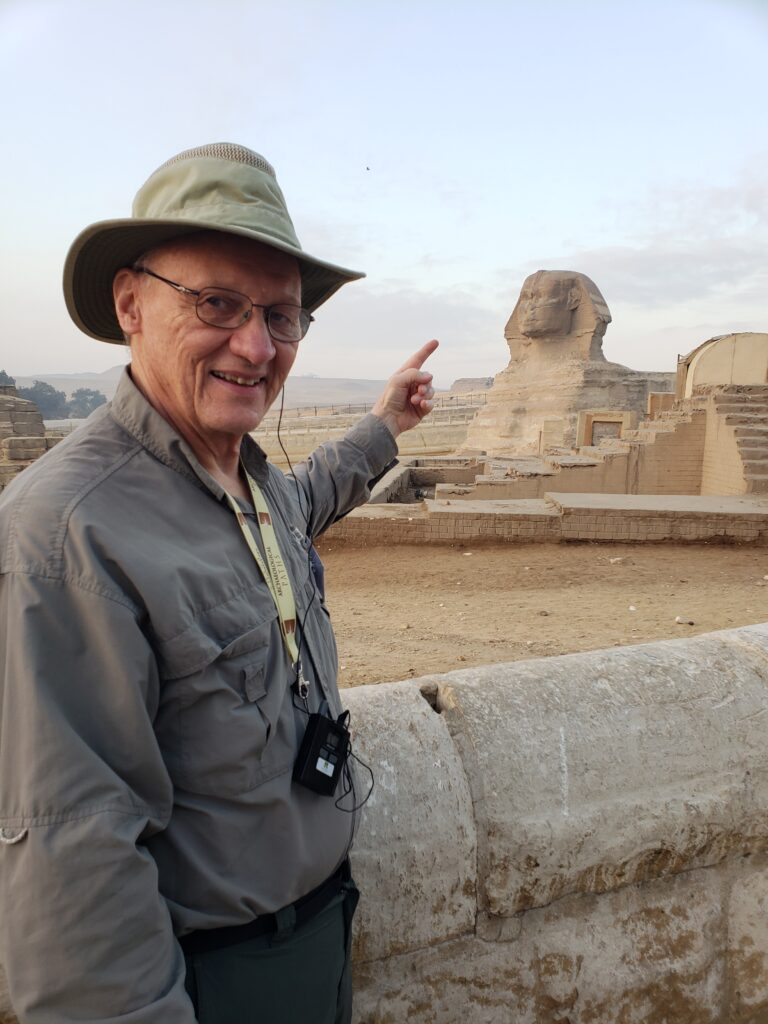As an Oregon State College freshman in 1959, alumni Ray North never expected a simple advising appointment to change the trajectory of his life.
Ray was only 17 and a second-generation immigrant, with parents who had not graduated from college. As a native of the Oregon Coast, Ray worked summers on a farm, at lumber or paper mills, and as a longshoreman. It was those jobs, as well as scholarships and national defense loans, that gave him the ability to pursue higher education.
He began his first year at college as a math major. He was enthusiastic to be attending school but was unsure about his future. During his first year, an advisor reached out to him and asked him to join the new College of Science Honors Program – Ray excitedly agreed.

The College of Science Honors Program included honors courses, small group seminars and a senior thesis. By 1969, it would evolve into a university-wide honors program, which existed at Oregon State until 1991, but in 1959, it was a new program in the College of Science. Ultimately, over 2000 students participated in the honors program during its 31-year existence. The current Honors College, which opened in 1995, built on that OSU honors legacy.
Ray immediately began to reap the benefits of the honors program.
“The honors program provided additional learning opportunities and mitigated the feelings of being somewhat lost in a large university,” Ray recalls in an essay he wrote about his Oregon State College experience.
By far, Ray’s favorite honors program activity was the seminars, which covered unusual and new topics like extrasensory perception and Boolean algebra. The true impact of being a member of the College of Science Honors Program didn’t arrive, however, until the end of Ray’s sophomore year, when he began to question his career path.
Ray recalls having sleepless nights as he reconsidered his decision to pursue math. As his second year in college went on, his trepidation grew: in the fall, he began to fear boredom in his projected career; in the winter, he wondered if he would feel isolated in the math field; and “by spring term, it was apparent that mathematics was not ideal” for him.
Then Ray remembered the advisor who had helped him so much in his freshman year – though they’d fallen out of contact, he immediately scheduled an appointment with him. The advisor calmed Ray’s nerves about changing his major, telling him that students did it all the time. He then asked if he would like to take an aptitude test to help him consider other options. Ray agreed.
The test showed that Ray had strong aptitudes for teaching math, for architecture and for medicine. Ray was both shocked and thrilled by the medicine result. His advisor helped him change his course load from math classes to pre-med ones.
“I left his office feeling jubilant,” says Ray. “My advisor had just inspired and motivated me with hope; I would take this new fork in the road leading to the unthinkable career of medicine!”
Ray eventually graduated in June 1963 from the College of Science Honors Program at Oregon State College with a Bachelor of Science in medicine. He then went on to graduate from the University of Oregon Medical School, now known as Oregon Health and Sciences University, in 1967 with a Doctor of Medicine degree.
For 25 years, Ray engaged in orthopedic surgery, becoming a pioneer in arthroscopic surgery. After a wrist injury, Ray continued his career with nonsurgical work for 17 years. Now, at the age of 79, he works as a knee consultant for the Oregon Department of Consumer and Business Services.
Ray wrote his essay on his life-changing experience in the College of Science Honors Program as part of a compilation of stories to leave for his six-year-old grandson. He hopes the essays will serve as important lessons for him, even after Ray is no longer around.
But he also hopes that current college students realize the importance of this time in their lives.

“You’re really trying to find yourself, and it’s an important time for young people to find themselves and be the best self they can be.”
Fifty-eight years later, Ray still remembers that honors advisor and his help fondly.
“I think when you’re younger, your life’s more about what you’re doing,” Ray says. “And when you get older, it’s more about the people and giving back to them.”
Ray’s family is a “Beaver family,” with his son, late first wife and many other relatives all graduates of OSU. As an alumni and donor now, Ray continues to try and spread the word to other doctors he knows to support Oregon State University and particularly the Honors College that has evolved from the College of Science Honors Program that meant so much to him.
“I think that trying to support the program is important, and I’m always willing to pitch in as much as I can,” Ray says.
The personal attention provided by that advisor was life changing, leaving him happier and more fulfilled. Over sixty years later, the modern Honors College continues to emphasize individualized support and community.
“I better understand and appreciate the significance of my sage advisor’s assistance,” Ray writes in the essay. “We only met four times. Regrettably I did not remember his name or his face. Nor did I stay in touch with him. But his influence was profound; I’ll never forget his advice and encouragement.”
By: Christopher McCracken
CATEGORIES: All Stories Alumni and Friends Features